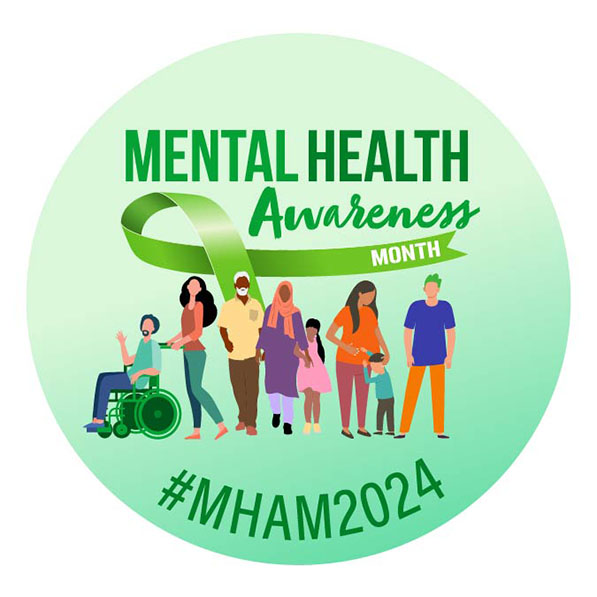May is Mental Health Awareness Month — created to not only increase awareness around how important mental health is to our overall health and well-being, but also provide resources and information to people and communities who may need mental health support.
Mental illness is a medical problem — just like diabetes or arthritis. Believe it or not, nearly one in five Californians face an unmet mental health need, and with the help of the California Mental Health Services Oversight and Accountability Commission (MHSOAC)’s voluntary standards for promoting mental health in the workplace, employers can help identify people at risk for mental illness and connect them to treatment.
These voluntary standards detail a framework for understanding employee mental health needs. And the framework is built upon workplace leadership committing to provide workplace mental health initiatives, such as encouraging leaders to model healthy behaviors like setting clear boundaries between work and personal life, as well as dedicating sufficient resources — like budget, staff time and technology — to workplace mental health efforts.
Employers also can practice promoting mental health well-being in everyday aspects of workplace culture, including:
- Offering programs or support for employees to further their own professional development;
- Encouraging employees to express gratitude to one another; and
- Developing a company culture that rejects stigma and allows employees to communicate about their mental health challenges (e.g., this infographic on reframing language is one resource).
Creating a positive company culture can then encourage employees to access mental health support and services. Employee Assistance Programs (EAPs) can provide employees with access to a variety of service and resources, according to the framework, which also notes that employers can also strive to ensure their mental health benefits are similar to physical health benefits they provide to employees. For workplace crises, the framework directs employers to develop strategies to support employees, such communicating empathy and support while acknowledging traumatic news, like a suicide that impacts employees or world events that may impact employee well-being.
Finally, the framework suggests identifying and tracking your organization’s workplace mental health measures and continuously seeking to improve their quality.
One quick and easy way to recognize Mental Health Awareness Month is letting your employees know about the 988 Suicide and Crisis Lifeline. In July 2022, the National Suicide Prevention Lifeline became the 988 Suicide and Crisis Lifeline, but still provides 24/7, free and confidential support for people in distress, prevention and crisis resources for you or your loved ones, and best practices for professionals in the United States. Anyone who is struggling can use this service by dialing or texting 988 (or chat online through their website). People can still call the previous lifeline phone number — 1-800-273-TALK (8255) — as either phone number will reach the crisis call centers.
Katie Culliton, Editor, CalChamber
CalChamber members can read more about Small but Meaningful Steps to Increase Employee Mental Health, Well-Being on HRCalifornia. Not a member? Learn how to power your business with a CalChamber membership.
